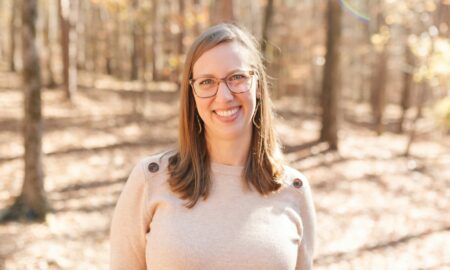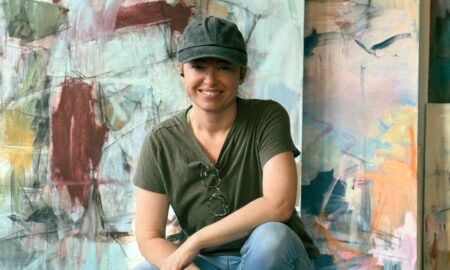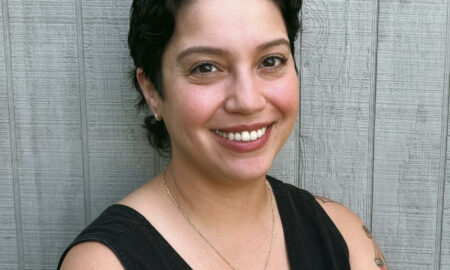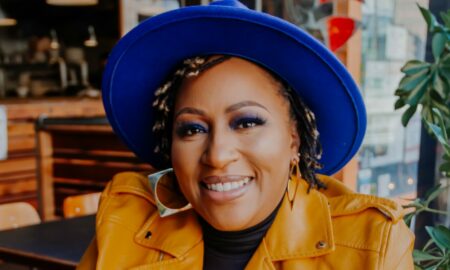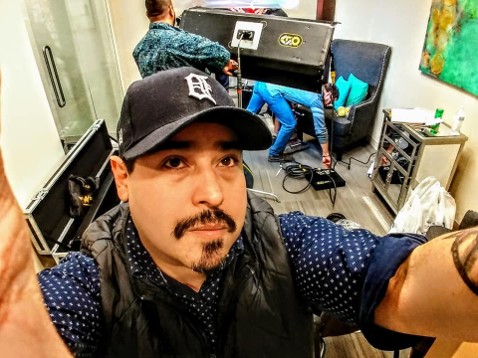

Today we’d like to introduce you to Gabe Duran.
Gabe, let’s start with your story. We’d love to hear how you got started and how the journey has been so far.
I grew up in a small town north of Dallas called Wichita Falls. As a kid, I was always fascinated by the visuals in music videos. MTV is what started my curiosity about what it was to be a filmmaker. To be specific, it was the behind the scenes of Michael Jackson’s Thriller that had me wondering about the industry. The production side of it excited me but something I noticed much later on in life really put me on the path of wanting to be a visual storyteller.
I remember as a kid not having very many people like me on the big screen and or television. I used to sit with my dad and watch old westerns and I would wonder why we were always portrayed as the evil banditos and or buffoons that all spoke in horrible broken English. At times I would wonder if that’s who we were to the people around us.
On American television/film, we didn’t have very many people to look up to. We basically had Poncherello from Chips, Ricardo Montalbán from Fantasy Island and Cheech from Cheech and Chong. We did have Latino-based television that was all in Spanish but as a Latino kid born in the United States, none of it related to who I was as a Chicano. That part of the America pie was missing from my childhood experience.
Later on, as a teenager, I was influenced more by Black culture. Hip hop music was hitting its stride, and films like Boyz in the Hood by John Singelton really had an effect on me. It was mainstream and we connected with the film in more ways than one. The young director told his story about what he knew growing up in L.A. and here it was connecting with me in small-town Texas. That was when I understood the power cinema and the power of telling your story through a lens.
As an adult, I moved to DFW and started taking any film-related classes at North Lake College. I later found out that UTA had a film program so I transferred there and started working on my undergraduate degree in film. It took a while to find who I was a filmmaker. I soon started to relate back to the success of Singleton and how he just simply told a story of what he knew. I then started to tell stories that impacted me and the people around me in which I found great success in doing.
After three years in the undergrad program, I graduated with some award-winning films but I really enjoyed the environment and my professors so I returned to get my masters in film. Soon after my MFA, I started teaching as an adjunct lecturer at two universities in DFW. Then later hired on as a full-time film lecturer at UNT.
As a writer and director, my films have won several awards and have screened on more than 50 different occasions all over the world including a television showing on PBS (KERA). I have also been invited to be a judge on several film festivals such as Dallas Videofest, Fort Worth Independent Film Showcase, Denton based Granatum and many others.
My love for the medium continued on as I became a co-founder of DFW’s only all Latino-based acting class and the director of an international Latino film festival here in DFW called Festival De Cine Latino Americano (FDCLA)
I currently have a few projects in the works. As of right now, we are still shooting our documentary about the ups and downs our of our Latino film festival We are about a year in about are looking to have it done after our 2020 festival At the same time I am finishing up a short film called “Machismo” that tells the struggle of how men handle masculinity and the troubles it may bring. Like all my work this film comes with a message and focuses on the struggles of living the urban life.
I am also working on a pitching a series to bring to Dallas. The series is based on my award-winning thesis film called Streets of a Scion. Which focuses on the relationships of Black and Hispanics living in the bubble of the hood/Barrio.
Overall, has it been relatively smooth? If not, what were some of the struggles along the way?
On the filmmaker side of things, the industry is tough to be relevant in especially in a bigger city like Dallas. The market is saturated with “filmmakers” and it takes a lot to separate yourself from the herd.
A lot of times you are only as good as your last project and unfortunately, this medium is not cheap. Like most independent filmmakers my budget is limited and I try to do with what resources I have. It’s hard to compete in festivals with other filmmakers that have the financial resources and the means to produce a bigger budget film.
Fortunately, I love telling stories that really resonate with me which makes it much easier for my films to reach a certain audience. With today’s advancement in technology, almost anyone can make a great looking film but not all can tell a great story and that is key in separating my work from the rest.
The film festival side, it almost mirrors what I stated above. We are a smaller festival that is competing in a very crowded film festival market. Funding has been and will always be one of the hardships of running a successful festival. Unfortunately, everything costs money and it takes a great some of it to make your festival memorable and enticing enough to keep bringing the filmmakers and the guest back year after year. Gratefully we have a dedicated committee who sacrifice a lot to make this happen year after year. We have been through so many ups and downs but we continue to push through them and make each year a successful one.
Alright – so let’s talk business. Tell us about Duran1 Films – what should we know?
I am the co-founder and the director of FDCLA which is Dallas/Fort Worth’s only all (nonprofit) Latino-based film festival.
FDCLA was founded in 2015 with the intention of bringing forth the underrepresented Latino filmmaker in today’s film festivals but also to increase awareness, exposure, and participation in Latin American film and the arts.
At first, the idea for the festival was basic. We wanted the festival to be in a hotel room with a few chairs and a projector. A few months later the idea turned into having a multiscreen movie theater and flying people in from all over the United States and Latin America. The festival went from Idea to large scale quickly but there was a lot of bumps and hiccups in that first year. With our inexperience, we weren’t really prepared to handle such a large scale festival but we had learned some valuable lessons our first year out.
I am most proud of that we honor Latin America’s countless contributions to the silver screen by being able to play dozens of films from all over the world, from Texas to South America, and everywhere in between. We are honored that we are at times the springboard for a lot of these filmmakers screening for the first time in the United States. We have the platform that is giving them the opportunity to screen there film where the audience can really relate with.
Every year we are striving to make our festival unique and memorable for all our honored guests, filmmakers, and audience members. Throughout the year we try to stay relevant by doing free pop up festivals in other cities across Texas to get more exposure for the filmmakers and to bring awareness to the medium of independent filmmaking.
Any shoutouts? Who else deserves credit in this story – who has played a meaningful role?
In this industry, you always will need the guidance of mentors and the support of an understanding family.
My family is always there through the long nights of preparation, shooting, editing, and post-production. They understand the sacrifice I make to get my artwork out there. At the end of the day no matter the end result they will always be there. So for myself, my family is the most important aspect of my success.
As far as mentors my university professors have always had an impact on my career. Fortunately, I had the honor and privilege to be taught under some amazing mentors/icons in the industry like Bart Weiss and Yake Smith and the late great Andy Anderson.
Without their guidance, a lot of us wouldn’t have been as successful in what we do. Through the many years of learning from them, we become close and to this day I still ask for that guidance in my career and in life. So they deserve a lot of credit in molding me into who I am now.
Contact Info:
- Address: 265 E Corporate dr #321
Lewisville, Tx 75067 - Website: https://duran1films.wixsite.com/gabrield
- Phone: 2149293447
- Email: Fdclafestival@gmail.com
- Instagram: https://www.instagram.com/duran1films/
- Facebook: https://www.facebook.com/FestivalDeCineLatinoAmerica/
- Other: https://www.facebook.com/FestivalDeCineLatinoAmerica/







Getting in touch: VoyageDallas is built on recommendations from the community; it’s how we uncover hidden gems, so if you know someone who deserves recognition please let us know here.













